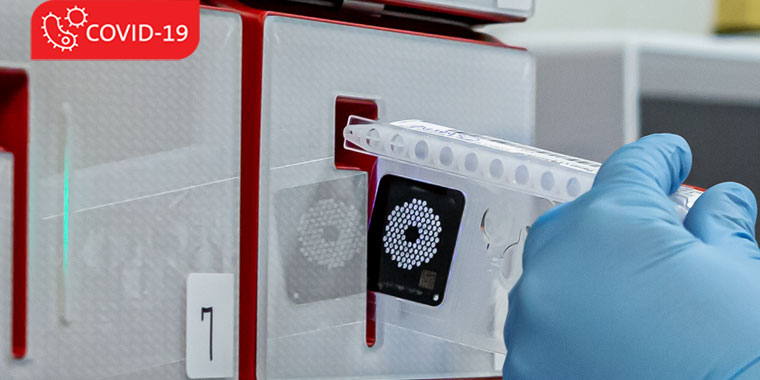Hindsight In 2020: Antibody Testing And COVID-19

Answer a few questions and we'll provide you with a list of primary care providers that best fit your needs.
When news first broke about the emergence of COVID-19, the availability of screening tests was increased to determine just how broadly and rapidly the disease was spreading. Although this was vital in helping nations develop policies to slow COVID-19’s transmission, even more clarity was needed to understand just how many people may have been exposed to and recovered from the coronavirus.
As a result, COVID-19 IgG antibody testing has emerged as an important tool not only to help to know the full breadth of the disease’s impact, but also to help with current and future treatments.
Premier Health Now spoke with family practitioner Joseph P. Allen, MD, FAAFP, with Premier Health Family Care of Vandalia to learn more about IgG antibody testing and the important role it plays in short- and long-term efforts to overcome coronavirus.
A Window Into the Past
“Basically, antibody testing is a simple blood test that allows us to see if your body has produced a specific protein in your immune system’s memory bank to help it fight off future infections,” says Dr. Allen. “There are different protein molecules that the immune system uses to identify foreign bodies and then quickly attack them. If we detect what’s known as the IgG protein molecule, for example, it tells us that at one time your body successfully fought off COVID-19, whether or not you exhibited any symptoms.”
Though there is much still to be learned about coronavirus, historically the presence of antibodies allows us to ward off diseases successfully. Antibodies produced by chicken pox in a child, for example, can help develop an immunity to avoid the disease later in life. In theory, if there are a higher percentage of people with coronavirus antibodies, then that same percentage may acquire future immunity from the disease.
Antibody testing is even more valuable since it also equips those who test positive to aid in the treatment of others who are currently battling COVID-19, and it may even help pave the way for a future cure. In fact, current testing methods that use a blood draw instead of a finger stick have become even more accurate since they were first made available to the public.
"A blood draw simply provides us with a larger volume that we can analyze much more accurately than the amount produced by a simple finger stick," says Dr. Allen. "The results from those initial finger stick tests weren't nearly as precise as those we are getting now."
“When someone tests positive for IgG antibodies, depending on where they live, they can potentially donate their plasma, which can be used to treat up to three or four patients who are seriously ill with COVID-19, or that same plasma may be used in research studies to develop future therapies,” says Dr. Allen. He notes that currently in Dayton, the IgG test is not being used to determine if an individual is a potential plasma donor, although that may change. Learn more about guidelines for plasma donation locally.
Individuals who have experienced a previously unexplained respiratory illness, and even those who simply believe they may have been exposed to someone with COVID-19 symptoms, are encouraged to receive an antibody test.
Ohio residents can receive an antibody test at CompuNet Patient Service Centers at dozens of locations throughout Southwest Ohio. No appointment is needed. If you have a doctor's order, insurance can be billed. Without a doctor's order, you may receive the test for $65, payable at time of service.
Answer a few questions and we'll provide you with a list of primary care providers that best fit your needs.
Source: Joseph Allen, MD, FAAFP, Premier Health Family Care of Vandalia





